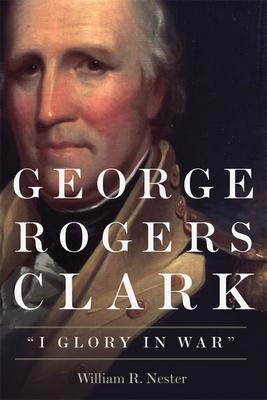
Nester attributes Clark's successes to his drive and daring, good luck, charisma, and intellect. Born of a distinguished Virginia family, Clark wielded an acute understanding of human nature, both as a commander and as a diplomat. His interest in the natural world was an inspiration to lifelong friend Thomas Jefferson, who asked him in 1784 to lead a cross-country expedition to the Pacific and back. Clark turned Jefferson down. Two decades later, his youngest brother, William, would become the Clark celebrated as a member of the Corps of Discovery. By the beginning of the nineteenth century, though, George Rogers Clark may not have been fit to command any expedition. After the revolution, he raged against the government and pledged fealty to other nations, leading to his arrest under the Sedition Act.
The inner demons that fueled Clark's anger also drove him to excessive drinking. He died at the age of sixty-five, bitter, crippled, and alcoholic. He was, Nester shows, a self-destructive hero: a volatile, multidimensional man whose glorying in war ultimately engaged him in conflicts far removed from the battlefield and against himself.
Nester attributes Clark's successes to his drive and daring, good luck, charisma, and intellect. Born of a distinguished Virginia family, Clark wielded an acute understanding of human nature, both as a commander and as a diplomat. His interest in the natural world was an inspiration to lifelong friend Thomas Jefferson, who asked him in 1784 to lead a cross-country expedition to the Pacific and back. Clark turned Jefferson down. Two decades later, his youngest brother, William, would become the Clark celebrated as a member of the Corps of Discovery. By the beginning of the nineteenth century, though, George Rogers Clark may not have been fit to command any expedition. After the revolution, he raged against the government and pledged fealty to other nations, leading to his arrest under the Sedition Act.
The inner demons that fueled Clark's anger also drove him to excessive drinking. He died at the age of sixty-five, bitter, crippled, and alcoholic. He was, Nester shows, a self-destructive hero: a volatile, multidimensional man whose glorying in war ultimately engaged him in conflicts far removed from the battlefield and against himself.
Paperback
$27.72